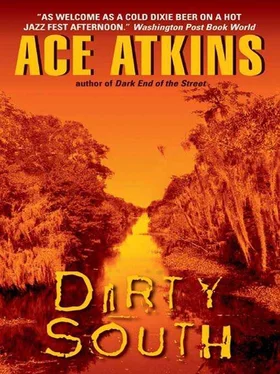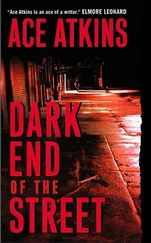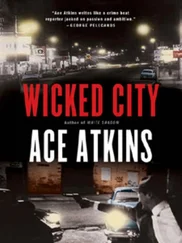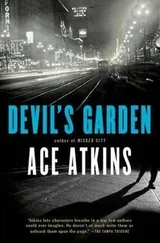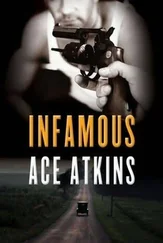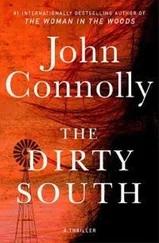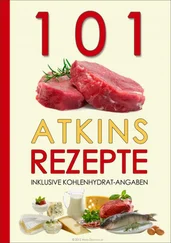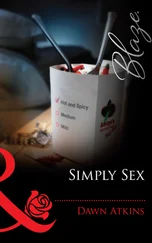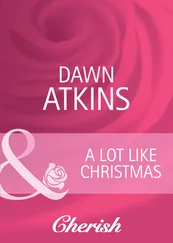I LEARNED HOW TO TAIL people when I was traveling through the Delta with my tracker mentor Willie T. Dean, and Willie T. wasn’t too big on taking no for an answer. I remember we’d once been searching for this man outside Jackson who knew something about the last days of Tommy Johnson and we were tired as hell. We’d been in the Delta for two weeks collecting stories and recording them on video and audio, and here was this guy who thought that white people were an abomination.
He’d rather sell his soul than have us sit up on his porch and ruin his reputation with his neighbors.
So instead of driving back to Oxford, where Willie T. had been teaching blues history for the last thirty years, he told me to park down this dirt road and wait till the old man’s pockmarked red Ford pulled out from the trailer.
We did. After a near fistfight, the purchase of a case of beer, and Willie T. warming him up with stories from our road trips and a little song he played on his 1920s Dobro, we got him talking.
But New Orleans wasn’t the Delta and this Dahlia woman was no bluesman.
I wanted to work alone, so I’d dropped Teddy at home. I soon found out the address in Midcity was bogus and had to have a friend of mine in Memphis run the social. Ten minutes later, he gave me an address back in Uptown, not far from the streetcar line. He used the same computer service as bill collectors, no one more tenacious.
I didn’t know how long it would take for Dahlia – if she even lived there – to pop her head out of the little carriage house where she lived in the Garden District. You could always tell someone lived in a carriage house when the street number contained a “ 1/ 2.”
I sipped on a Barq’s, ate some Zapp’s Crawtaters, and leaned back into the seat of the Ghost, my stereo tuned low on some ’68 Comeback, a band out of Memphis. The air was sticky and thickly humid. Huge brown elephant ears grew in rotted rows along the steps to the second floor. A collection of rusted wind chimes and flowers rubbed against one another in the summer heat.
I was parked under a huge oak on a little side street near the cross of St. Charles and Napoleon. The streetcar clanged and rolled in the distance. I could smell the Mississippi and the sugary-sweet smell of decaying magnolia flowers. I finished the bag of chips.
I could not see inside the carriage house – the building leaned a little to the right, probably a casualty of the city’s termite plague – but could see blue light leaking through her curtains. I heard the wind chimes ringing and the sound of drunks on the patio of Copeland’s restaurant at the corner.
Forty-two minutes later, Dahlia ran down the creaking wooden steps, past a car covered in a mildewed tarp, and down the narrow gravel drive to a brown Miata. I started to grab her right there, but she was too fast and I was curious about where she was headed.
She started the car, drove a block down Napoleon, and then circled back to St. Charles. I did the same, keeping about three cars back. We passed rows of restaurants and dry cleaners and Victorian houses, up and around Lee Circle. Neon and brightly fluorescent in the night.
She turned on Poydras, headed to the river, stopping down by Peters by Harrah’s Casino. I found a pretty quick parking place, slapped The Club on my steering wheel, and followed. I stayed about eight yards back. I was pretty sure she was headed into the casino, but two seconds later, she ducked into the W Hotel.
I watched from a large bank of windows along Peters as she gave a kiss on the cheek to the bouncer at this place called Whiskey Blue, a bar I’d heard was the top place to be seen in New Orleans. One of those beautiful-people hangouts where everyone dressed like they’re trying to imitate Dieter from the Sprockets skit on Saturday Night Live .
The bouncer – of course dressed in all black – waved me in, unconcerned about my age.
The bar vibrated with techno music and had been softly lit with track lighting and candles. All leather and velour. Soft cushioned sofas and high bar stools. Lots of health-club-muscled men with goatees. A few of the golf-shirt crowd with cell phones on hips. The bar was spare and obsessively clean.
Martinis and Manhattans. Few smokers. These people were too beautiful to smoke. Too rich. Too perfect. Maybe she was moving up from Airline Highway, found her a little sugar daddy.
Dahlia had found a place in the far back corner of the bar. A little cove of low sofas and curved love seats. She’d taken up a comfortable spot on the lap of some white man in a black suit.
I ordered a Dixie from the bartender.
“A what?” asked the bartender. She wore a tight black tank top and a very short miniskirt. Long tanned legs and knee-high black boots.
“A Dixie.”
“Is that with rum?”
“Hops.”
She wrinkled her nose. “What?”
“It’s a beer,” I said.
She pointed to a shelf of imports and other microbrews. I accepted a Sam Adams and waited at the bar, the techno making my ears bleed, some jackass next to me talking to someone about where they “were going to hit next” and a “kick-ass deal” he’d made with a client. I watched Dahlia, keeping my head turned away. The man in the black suit swatted her butt playfully and wrapped his fingers around a frosted martini glass.
About five white people around them laughed at something he’d said. But I could not see his face.
I took a sip of the Sam Adams.
Dahlia snuggled her face into the man’s neck.
He took a broad, self-indulgent smile. Martini in the right hand. Dahlia’s muscular ass in the other. He turned.
Trey Brill.
BEEN A DAY. Been a year. You ain’t sure. All you know is that you left in some broke-ass town with two T-shirts to your name and an old man ridin’ you hard about work. You become just a slave to him. He’s about a hundred years old and old school as hell, the way he play records on this phonograph and sip beer out on his porch with his old lady. You like the old lady. She buy you some new clothes and cook you some food that’s ’bout the tastiest shit you ever put in your mouth. Chicken pie. Greens.
She respect you. She call you ALIAS.
Not the old man. That old man call you kid or Tavarius or just Stovall with a laugh. You ain’t nothin’ but a punk to him, puttin’ up fences till you have blisters, paintin’ some raggedy-ass barn till it get dark. Yesterday he take you fishin’ and think you a fool for not knowin’ how to work a hook.
He don’t know shit.
Tonight he brought you downtown and you think this gonna be all right. You down off another road called Martin Luther King. He tellin’ you all about when he was your age, like you give a shit, and all about whiskey and women – all the money that was floatin’ down these cracked asphalt streets.
But you can’t see it. Clarksdale had to be a broke-ass city from the start, man. The stores have sheets of wood in the windows, just like the places round Calliope, and boys work the corners with their rock just the same. The old man just shake his head at those fools and take you into this old brick building that look out onto the corner. A yellow light comin’ from the door like a candle glow in a skeleton’s mouth.
The corner is workin’ tonight. You can smell the funk sweat off the crackheads’ bodies and that lazy eye from the women in tight skirts. You don’t mess with that. You got your life.
Old man take you inside. The floor is concrete but worn smooth from dancin’ feet. There’s a pool table in the corner with some green felt burned by cigarettes and a small bar where they only serve beer and whiskey. Christmas lights – blue, green, and red – hang from the walls.
Читать дальше
